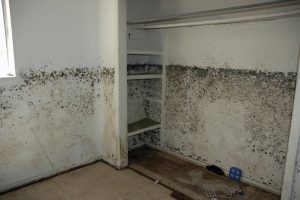Got Mold?
Got Mold?
Over the last few years, mold testing and remediation has become more prevalent in the sale of a home. Because of this, it is important for real estate agents to have a basic knowledge about mold to better assist your clients.
The key to the prevention of mold is moisture control. If high levels of moisture are present within a home or crawlspace, the first and most important step is to stop the moisture intrusion. To prevent mold growth, it is important to dry wet or water damaged areas within 24-48 hours.
Molds are part of the natural environment. Molds are essential in the breaking down of organic matter, such as leaves and fallen trees. Mold reproduces by tiny spores which are invisible to the naked eye. The spores float through the air, both outdoors and indoors. Mold begins growing inside a home when the spores land on wet areas. There are numerous types of molds, but none of them will grow without moisture.
Mold has the potential to cause health problems. Molds produce allergens, irritants, and in some cases, potentially toxic substances (mycotoxins). Inhaling or touching mold spores can cause allergic reactions to susceptible individuals. Allergic reactions include, but are not limited to, asthma, sneezing, runny nose, and red eyes. The reactions can be immediate or delayed and affect those allergic and non-allergic. You can help protect clients from the potential health effects of mold through testing.
Testing methods for mold include surface samples and indoor air quality test. The list below shows when it’s a good idea to utilize these testing methods during the due diligence process.

| When to have a Surface Sample taken:
|
When to have Indoor Air Quality Test:
|
If testing reveals mold, who should do the cleanup? This depends on a number of factors. One consideration is the size of the mold problem. If the area is less than 10 square feet, the seller or a qualified contractor should be able to the handle the job. If the area is larger, it is best to consult with a reputable mold remediation company. When hiring a company for remediation be sure to check references and ask the contractor to follow the recommendations of the EPA, the American Conference of Governmental Hygenists, or other guidelines from professional or government organizations.
